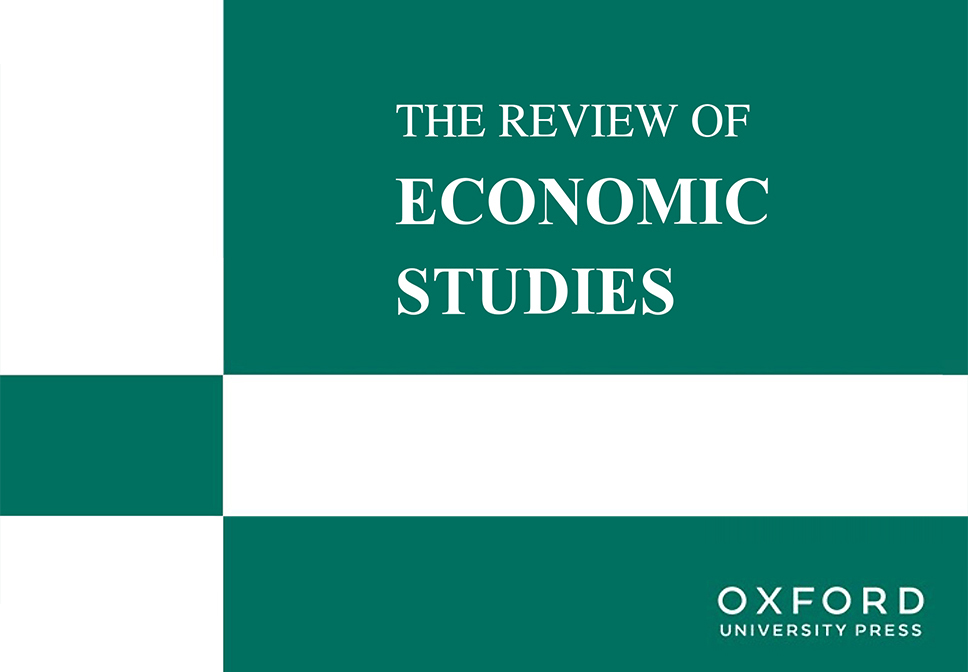Exploring the Future of Online Markets: Meet PhD Student Nicholas Wu

What are the economic consequences of innovation? How does technology and AI impact how businesses are run, or how we interact with each other?
As an undergraduate computer science and mathematics major, Nicholas Wu had long been fascinated by recent technological advancements impacting society around us. A course in market design opened his eyes to how economic theory can rigorously tackle these issues, and helped shed light on everything from pricing algorithms to organizing school choice systems to structuring online marketplace.
“I’d always loved math,” Wu said. “But seeing how it was applied to real-world policy and strategy in market design was what drew me in. I realized there are tools from economics that can inform some of the biggest questions facing new digital platforms.”
That new perspective led Wu to Yale’s Economics PhD program and its microeconomic theory group. Once on campus, he found both faculty and fellow students eager to explore how modern technology shapes markets: “During my first year, Professor Johannes Hörner led a reading group on AI and economics,” Wu said. “We dove into all the latest research and discussed the implications for economics and society, and that really helped guide my research interests early on in the program.”
From RA Work to Collaborative Research
Early in his time at Yale, Wu connected with Professor Dirk Bergemann, whose research centers on information design and digital markets—two areas that closely aligned with Wu’s interests.
“I reached out to Dirk in my second year,” Wu recalled. “I loved what I was learning about information design and how the incentives built into online platforms affect everything from pricing to competition. Dirk’s work on online advertising and digital markets seemed like a perfect fit.”
Wu began as a research assistant, helping refine proofs and run simulations for Bergemann’s ongoing projects. That experience blossomed into more collaboration and eventually coauthorship, with Wu and Bergemann investigating the complex dual role online platforms play—providing valuable consumer data to sellers while also deciding how to allocate advertisements and price recommendations to each user.
A Closer Look at Digital Auctions and Advertising
In a paper recently published in the Review of Economics Studies, Wu and Bergemann, together with coauthor Alessandro Bonatti (MIT Sloan), study the data-intensive mechanisms by which large online platforms like Google, Meta, and Amazon match consumers with advertisers:
- Enormous Scale of Digital Advertising: Online advertising now exceeds $600 billion worldwide, with roughly 60% of that revenue accruing on platforms’ own websites and apps. The majority of Google’s ad revenue, for instance, comes from its own sites (e.g. Google Search, YouTube) rather than third-party publishers.
- Managed Campaigns and ‘Auto-Bidding:’ Over 80% of digital advertising is now generated by “managed campaigns,” where advertisers specify budgets and broad goals, leaving the detailed bidding and price-discrimination tasks to platform algorithms. This centralization gives platforms even more power over how ads are displayed—and at what prices.
- Parallel Sales Channels: Firms can sell their products off-platform (to “loyal” customers who often pay a uniform price) or on-platform (where they may target new consumers with potentially lower, individualized prices). This creates what the research team calls a “showrooming” constraint: if a firm offers a cheaper price offline, its online customers might be tempted to jump off the platform to get the discount.
Their model highlights that when platforms wield vast amounts of consumer data—for example, past search histories, browsing patterns—they can facilitate very targeted price discrimination. This, in turn, can lead firms to raise their prices off the platform, so they can safely offer steep discounts to selective on-platform users without undermining offline sales.
“We show that because platforms can use their proprietary data to target shoppers with tailored deals, firms respond by adjusting prices elsewhere—sometimes in ways that reduce competition overall,” Wu explained. “A platform might even design its algorithms to ensure that the most efficient firm always appears, weakening price competition and allowing firms to extract more consumer surplus on-platform.”
At the policy level, these findings resonate with concerns raised by regulators like the U.K.’s Competition & Markets Authority, which questions whether managed campaigns drive up general price levels by passing advertising costs on to consumers. Privacy restrictions, transparency mandates, or limits on the platform’s ability to bundle user data could, in principle, restore more competitive pricing strategies both online and offline.

Journal Publication
How Do Digital Advertising Auctions Impact Product Prices?
Authors: Dirk Bergemann, Alessandro Bonatti, Nicholas Wu
Building a Supportive Community at Yale
For Wu, this deep dive into online market design has been nurtured by Yale’s collaborative environment. Formal reading groups, lively seminars, and daily conversations in the department’s common areas foster a spirit of open exchange.
“When I was a first- and second-year student, the older students and faculty were incredibly generous with their time,” Wu said. “I could bring them half-formed ideas, and they’d help me see the interesting thread. There’s a real sense of excitement about pushing the boundaries of theory together.”
That camaraderie extends well beyond seminars. Wu and other graduate students often help each other puzzle through proofs, trade insights on cutting-edge papers, and decompress over board games outside of class.
Looking Ahead
With graduation on the horizon, Wu looks forward to further investigating how tech and innovation drive market outcomes—whether through advanced AI tools, new pricing algorithms, or fresh approaches to digital advertising. The intersection of math, theory, and policy relevance lies at the heart of his passion for economics.
“I’m thrilled to keep exploring how these forces interact,” he said. “It’s exactly what drew me to the field: rigorous models tackling questions with real-world implications—and a supportive environment that makes that work so rewarding.”